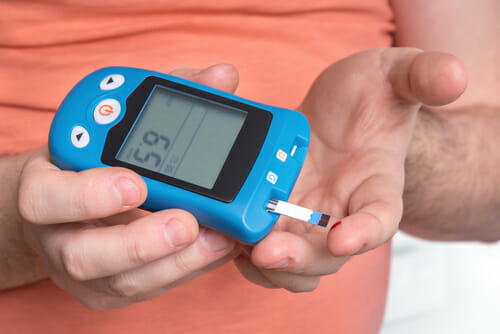Former theme lead: Professor Matt Sydes
Clinical trials are the gold standard for testing new treatments, but they can be expensive, slow, and resource-intensive. Right now, most UK trials don’t fully tap into the wealth of NHS data that already exists.
If you’re looking to integrate routinely collected NHS health data into your trial, we’d love to help. Get in touch.
Looking for opportunities to participate in clinical trials? Find out more here.
What we do
We work closely with triallists, clinicians, and data scientists to create the tools, resources, and infrastructure needed to enable and enhance data-enabled clinical trials.
By using real-world healthcare data, we can:
- Identify and invite trial participants faster
- Ensure diverse and representative trial populations
- Reduce duplication of data collection and entry
- Minimise costly trial monitor site visits and admin work
- Improve long-term participant follow-up
This means more trials, better data, and faster benefits for patients.
Key areas of work
Helping researchers navigate health data for trials
We provide practical guidance on how to access, use, and interpret NHS health data in cardiovascular trials.
Data resources for clinical trials
Report: How to facilitate the use of healthcare systems data in trials
We’re also developing a Data Utility Comparison (DUCk) study – a Study Within A Trial (SWAT) – to assess how well routinely collected NHS data performs compared to traditional trial data collection.
In collaboration with HDR UK, the Transforming Data for Trials programme is also working to transform access to, and the utility, analysis and understanding of healthcare systems data to enable its use in clinical trials – providing research teams with the same reliable outcomes with less effort and reduced costs.
Developing consistent and clinically agreed data-based outcomes for trials
Consistent and clinically agreed phenotypes and outcomes are critical when planning, running, and interpreting findings from clinical trials.
The SCORE-CVD (Standardising Clinical Outcome measures in Routinely collected Electronic healthcare systems data) project brings together clinical experts, triallists, and health data scientists, and public contributors to standardise trial outcome measures by defining consistent, high-quality trial outcome measures using NHS health data.
Priority outcomes include:
- Heart attack (Myocardial Infarction)
- Stroke
- Cardiovascular death
- Heart failure
- Major bleeding
We’ll continue to share progress and updates from this work, with findings from this project having the potential to support the clinical trial community with new resources to finetune future trials.
Read the SCORE-CVD initial report
Areas of work
Find out more about our data-led research.

Whole Population Data
We aim to improve access to and use of high-quality, linked health datasets covering entire populations across the UK.

Defining Disease
To drive large-scale, data-driven research, we’re working to develop and share reusable definitions of cardiovascular diseases in computable forms. These definitions enable researchers to interpret and use health data, leading to more accurate and reproducible studies.

Enhancing Cohorts
We’re working to accelerate health data research by making it easier, faster, and more secure to link data from clinical cohorts with routine health records. This approach will help researchers uncover new insights into disease causes, progression, and treatment, improving patient care and outcomes.

Imaging
Cardiovascular imaging research has the potential to transform disease diagnosis, risk assessment, and treatment. This area aims to improve access to imaging data linked to health-relevant datasets across the UK, enabling innovative research and improving patient outcomes.

Smartphones and Wearables
We’re working to unlock the potential of smartphone and wearable data to discover new ways to prevent, diagnose, and treat cardiovascular disease, by establishing secure access to and fair use of smartphone and wearable data linked to healthcare records.

CVD-COVID-UK / COVID-IMPACT
One of seven National Flagship Projects approved by the NIHR-BHF Cardiovascular Partnership, linking population healthcare datasets across the UK to understand the relationship between COVID-19 and cardiovascular diseases.

Diabetes Data Science Catalyst
This exciting partnership between the BHF Data Science Centre, Diabetes UK and HDR UK aims to develop improvements in our understanding of the link between cardiovascular diseases and diabetes.

Stroke Data Science Catalyst
This partnership between the BHF Data Science Centre, HDR UK and the Stroke Association will enable researchers to securely access, link and analyse existing UK health data, speeding up the search for better stroke prevention, treatments and care.

Kidney Data Science Catalyst
This partnership between the BHF Data Science Centre, Kidney Research UK and HDR UK will enable researchers to securely access, link and analyse existing UK health data, speeding up the search for better kidney and cardiovascular disease prevention, treatments, and care.